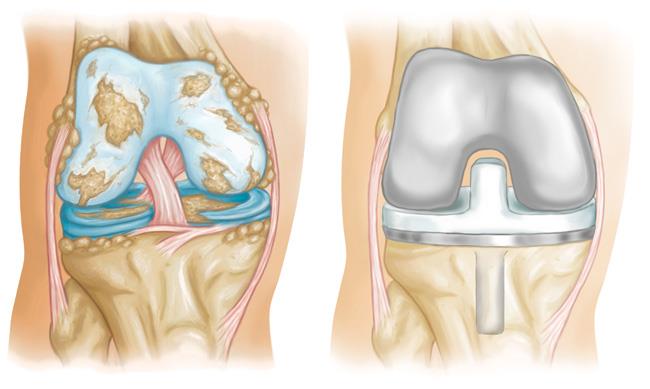Post Hip/Knee Replacements Home Care

A smooth and speedy recovery depends on your help and cooperation. The patient participation is essential in reaching your goal at home and avoid complications (problems).
Important Points to Remember
- Do not sit the leg crossed and do not bend the leg lesser than 45 degrees.
- Do not sit on a lower floor chair or sofa/commode.
- Use a pillow or foam wedge between your legs while you are in bed.
- Wear leg compression devices to prevent blood clots and to reduce swelling. Also can elevate the leg with pillow support to reduce swelling
- Sit on the edge of the bed and stand with help.
- Sit up in a chair for meals and physical therapy
- Do the ankle pumps. Do them 10 times every hour while you are awake.
- Use a walker or crutches.
- Do not bend forward while walking, keep the back straight.
- Help when he need to get out of bed, get out of a chair or go to the bathroom to help prevent falls.
- Do your exercises as directed by your physical therapist.
- All the prescribed medicine need to be taken on time
- In case of pain can apply ice pack but never any hot packs .
- Wound will take few weeks to heal; until then wound care need to be followed. Proper cleaning and dressing changing is mandate.
- Check for the following
Warning Signs of Infection
- Persistent fever (higher than 100 degrees)
- Shaking chills
- Increasing redness, tenderness or swelling of your wound
- Drainage from your wound
- Increasing pain with both activity and rest
Warning Signs of Blood Clot
- Pain in your leg or calf unrelated to your incision
- Tenderness or redness above or below your knee
- Severe swelling of your thigh, calf, ankle or foot
In very rare cases, a blood clot may travel to your lungs and become life-threatening. Signs that a blood clot has travelled to your lungs include:
- Shortness of breath
- Sudden onset of chest pain
- Localized chest pain with coughing
Notify your doctor immediately if you develop any of the above signs.
Exercises Will Help Speed Recovery and Diminish Postoperative Pain. For example:-
- Ankle Pumps.
- Ankle Rotations.
- Bed-Supported Knee Bends.
- Buttock Contractions.
- Abduction Exercise.
- Quadriceps Set.
- Straight Leg Raises.
- Stair Climbing and Descending.
To read more on Patient Care, click on the link below.


